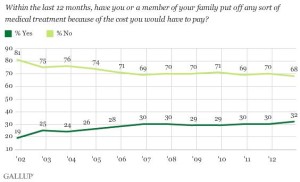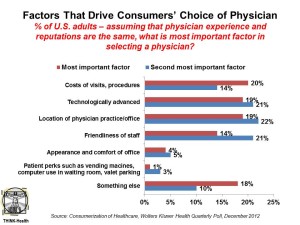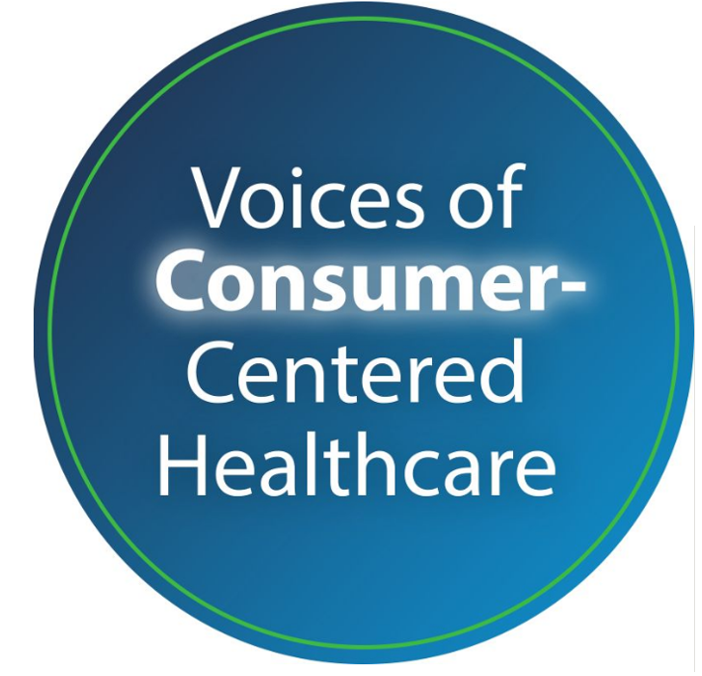
Two surveys of American consumers point to their growing concern over (1) rising costs and (2) wanting control over their care.
More than 1 in 3 U.S. adults put off health care due to costs in the past year, a Gallup poll found. As shown in the graph, this is the highest proportion of people forgoing care due to cost since Gallup began asking the question in 2012. This survey was conducted in November 2012.
There are differences between people without insurance and those with commercial or public sector plans such as Medicare and Medicaid. Over one-half of uninsured people (55%) postponed care, versus 30% of people with private insurance and 21% of people enrolled in Medicare or Medicaid.
Note that the proportion of commercially-insured people dissatisfied with health care costs has significant grown since 2001, compared with 3 in 4 Medicare/Medicaid enrollees who are satisfied with health care costs.
 No surprise, then, that 80% of Americans say growing consumerization is a positive trend for U.S. health care, according to Wolters Kluwer’s survey conducted in November 2012 among 1,000 U.S. adults. Wolters Kluwer says consumerization is “the trend of individuals taking a greater and more active role in their own healthcare.” 3 in 4 consumers said they have in hand the information and tools to be more proactive in healthcare — such as researching treatment options and health providers. Some 19% note they have an electronic Personal Health Record (PHR).
No surprise, then, that 80% of Americans say growing consumerization is a positive trend for U.S. health care, according to Wolters Kluwer’s survey conducted in November 2012 among 1,000 U.S. adults. Wolters Kluwer says consumerization is “the trend of individuals taking a greater and more active role in their own healthcare.” 3 in 4 consumers said they have in hand the information and tools to be more proactive in healthcare — such as researching treatment options and health providers. Some 19% note they have an electronic Personal Health Record (PHR).
Health Populi’s Hot Points: Together, these two surveys illustrate the reality facing consumers: that the microeconomy of healthcare for the household is part of larger macroeconomic trends that impact the nation, states, employers, families and individuals. That 1 in 3 consumers postpones necessary care due to costs means that those people are making short-term fiscal decisions that can compromise and exacerbate negative, longer-term physical outcomes, whether avoiding a test to determine earlier onset of a complex disease, or avoiding a copayment for filling a prescription for managing a chronic condition.
Wolters Kluwer also found that 3 in 10 consumers wants their patient experience to mirror their experience found in retail or travel venues. This is the morphing from health care delivered “unto me” by health providers to healthcareDIY — co-creating health with stakeholders in “my” health care ecosystem. I’ve written much about this concept in Health Populi; to learn more, search on the term “healthcareDIY” on this blog and you’ll find many posts discussing the growing role of consumers in their own health care.




 Thank you, Jared Johnson, for including me on the list of the
Thank you, Jared Johnson, for including me on the list of the  I am so grateful to Tom Lawry for asking me to pen the foreword for his book, Health Care Nation,
I am so grateful to Tom Lawry for asking me to pen the foreword for his book, Health Care Nation,  Thanks to Feedspot for naming this blog, Health Populi, as a
Thanks to Feedspot for naming this blog, Health Populi, as a